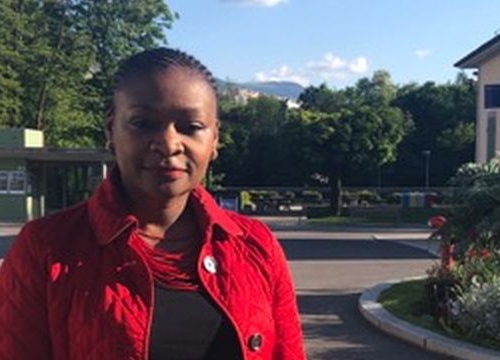Executive Master in International Law in Armed Conflict: What Participants Say
4 June 2019
Mpho Somhlaba is a South African Diplomat responsible for humanitarian issues at the Permanent Mission of South Africa to the United Nations in Geneva and is currently enrolled in our Executive Master in International Law in Armed Conflict.
Prior to that, she served at the South African Embassy and Permanent Mission to the United Nations in Vienna, Austria, and was responsible, for the United Nations Office on Drugs and Crime (UNODC) portfolio. She has also served as a Legal Advisor at the Department of International Relations and Cooperation in South Africa.
Why Did You Choose the Executive Master In International Law Armed Conflict?
It has been my ambition to pursue a master degree and specialize in human rights law and international humanitarian law (IHL) whilst at the same time pursuing my diplomatic career. I chose the Executive Master in International Armed Conflict notably because it addresses human rights law and IHL and, furthermore, because it is a perfect fit for my profession. The programme is very intense and contains critical information which is relevant to my area of work.
Apart from the fact that Geneva is the hub for humanitarian affairs and is where the Office of the UN High Commissioner for Human Rights and the UN Human Rights Council (HRC) are situated and seat respectively, the Executive Master in International Law in Armed Conflict provides one with all the training in these two branches of international law.
Does it Respond to your Expectations?
Oh yes, it responds to my expectations and excels in meeting those.
What are the Highlights of the Programme?
The interactive nature of the programme aimed at finding solutions to global problems is the highpoint for me. I also enjoy the realistic examples and case reviews presented by professors. This includes the useful practical approaches that the professors share in resolving those cases.
A Moment you Particularly Enjoyed?
Apart from Professor Sassòli and Professor Kolb’s lectures on IHL, I enjoyed the short training provided on the functioning and mechanisms of the HRC. This short training course was interactive and the speakers were experienced interlocutors who reflected a great deal on the dynamics at play within the HRC.
What Will it Bring to your Career?
This programme is an important tool that strengthens my communication, writing and indeed interpersonal skills. The programme has also enhanced my ability to analyse information and provide solutions. Coming from a developing country where the unemployment rate is very high and with endemic challenges in the creation of new jobs, the skills acquired through this programme will accord me an added advantage and augment my eligibility for career progression, in a focused manner that will bring immense benefits to my employer.










